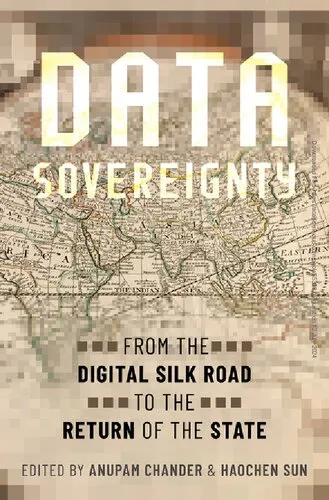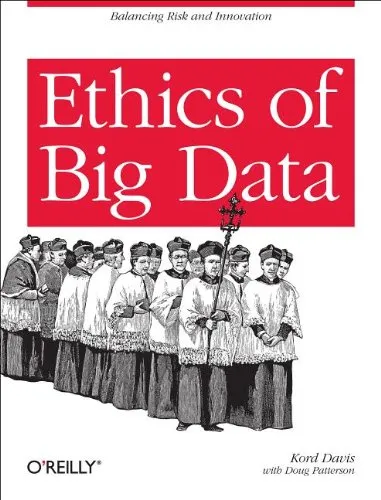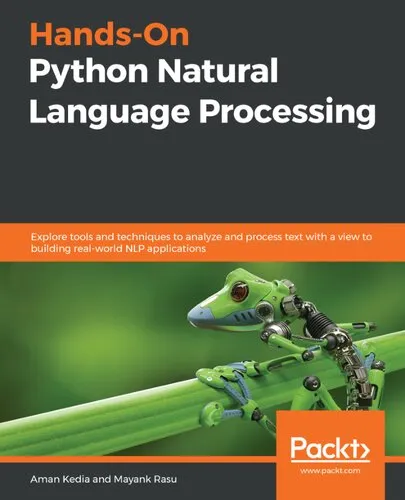Data Sovereignty: From the Digital Silk Road to the Return of the State
4.5
Reviews from our users

You Can Ask your questions from this book's AI after Login
Each download or ask from book AI costs 2 points. To earn more free points, please visit the Points Guide Page and complete some valuable actions.Related Refrences:
Introduction to Data Sovereignty: From the Digital Silk Road to the Return of the State
In a world where data drives economies, powers decisions, and shapes societies, the concept of "data sovereignty" has never been more critical. Data Sovereignty: From the Digital Silk Road to the Return of the State, edited by Anupam Chander and Haochen Sun, delves deep into the evolving dynamics of data governance, international politics, and the implications of data localization. This book invites readers to explore the intersection of technology, law, and state power, analyzing how nations wrestle with controlling the flow of digital information in an interconnected world.
The book is a powerful exploration of the rise of data protectionism, the geopolitical dimensions of cross-border data flows, and the challenges of balancing national interests with global digital innovation. It addresses critical issues like the role of China’s Digital Silk Road initiative, the influence of data localization laws, and the impact of state assertions of sovereignty in cyberspace. For policymakers, technologists, and scholars, this volume serves as both a timely guide and a profound reflection of the forces shaping the future of our digital world.
A Detailed Summary of the Book
Data Sovereignty explores the increasingly fragmented digital ecosystem, where states are reasserting their power over data in reaction to global economic and security concerns. The book introduces the growing phenomenon of data sovereignty, where countries require data belonging to their citizens or organizations to be stored, processed, and managed within their borders.
The narrative is divided into several thematic areas. It centers on China’s "Digital Silk Road," which serves as a cornerstone for analyzing how data has become a new axis of geopolitics. The initiative highlights how China is exporting its technological infrastructure globally while maintaining strict control over data flows domestically. The book contrasts this with the approaches of Western democracies, which are wary of overregulation but are also implementing their own data protection frameworks, such as Europe’s General Data Protection Regulation (GDPR).
The editors also investigate the implications of data localization policies and whether they create opportunities for sovereignty at the expense of innovation and international trade. Through contributions from leading global experts, the book examines the tension between fostering global connectivity and protecting national security, privacy, and citizens' digital rights. It further addresses how a fragmented internet shaped by regional and national barriers is altering the idea of a global internet as a shared space for innovation and collaboration.
In essence, this book argues that the balance of power in the digital age is being reshaped by debates surrounding data ownership, access, and control.
Key Takeaways
- Data is the new oil—its control determines not only economic development but also geopolitical influence.
- The "Digital Silk Road" exemplifies how infrastructure investments can serve as a means of extending influence over international data regimes.
- Data localization regulations are on the rise, leading to innovation challenges but offering enhanced protection for national security and privacy.
- Countries must carefully navigate the tradeoff between global connectivity and local data control to achieve a fair digital order.
- International cooperation and trust are increasingly difficult in a world of competing data governance regimes.
Famous Quotes from the Book
"In the new data-age geopolitics, sovereignty may no longer be about defending borders, but about guarding bytes."
"A fully connected world holds enormous promise, but only if nations can balance the desirability of openness with the necessity of control."
Why This Book Matters
Data Sovereignty: From the Digital Silk Road to the Return of the State is an essential read for anyone invested in understanding the future of technology, law, and international relations. In a time when data is both a critical economic resource and a volatile flashpoint for state tension, this book provides unique insights into the dynamics shaping digital governance.
It matters because the decisions made by governments today on data flows and regulation will determine the trajectory of democratic values, global commerce, and individual freedoms. By unpacking the policies and ideologies shaping the new digital order, this book encourages its readers to think critically about the importance of balancing sovereignty, innovation, and ethical governance in the digital age.
Whether you are a policymaker, a tech leader, or a concerned citizen, this book offers a nuanced perspective on the tradeoffs and opportunities of data sovereignty in the 21st century. It is not just about understanding the present; it is about shaping a future where technology serves humanity, not just the interests of the most powerful actors.
Free Direct Download
You Can Download this book after Login
Accessing books through legal platforms and public libraries not only supports the rights of authors and publishers but also contributes to the sustainability of reading culture. Before downloading, please take a moment to consider these options.
Find this book on other platforms:
WorldCat helps you find books in libraries worldwide.
See ratings, reviews, and discussions on Goodreads.
Find and buy rare or used books on AbeBooks.
1506
بازدید4.5
امتیاز0
نظر98%
رضایتReviews:
4.5
Based on 0 users review
Questions & Answers
Ask questions about this book or help others by answering
No questions yet. Be the first to ask!













![The Ultimate iOS Interview Playbook: Conquer Swift, frameworks, design patterns, and app architecture [Team-IRA]](https://s3.refhub.ir/images/thumb/The_Ultimate_iOS_Interview_Playbook__Conquer__29925.webp)







![Building Data Science Applications with FastAPI: Develop, manage, and deploy efficient machine learning applications with Python [Team-IRA]](https://s3.refhub.ir/images/thumb/Building_Data_Science_Applications_with_FastA_31328.webp)















